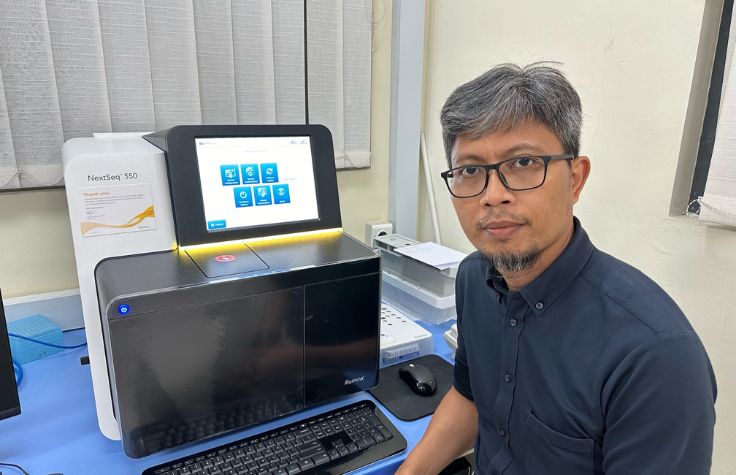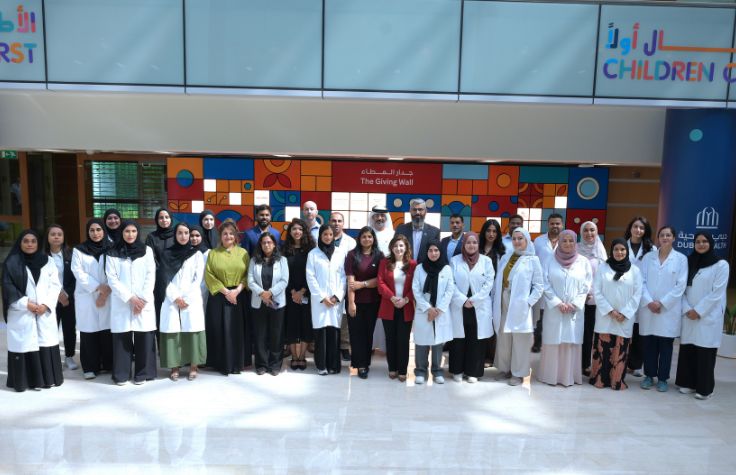
November 9, 2023
Indonesia acquired several sequencers during the worst days of COVID-19 to better manage the disease, but as the pandemic wound down, researchers wanted to find new uses for them. To take advantage of these sequencing capabilities, the Indonesian Ministry of Health launched the Biomedical and Genome Science Initiative (BGSi), the country’s first national sequencing program.
BGSi is studying eight disease areas, including cardiovascular and infectious diseases, in nine genomics centers around the country. The cancer initiative is based at Dharmais National Cancer Hospital in the capital, Jakarta.
“I was talking with the Indonesian minister of health, and he wanted to know what we should do with these sequencing machines when COVID abated,” says Ahmad Utomo, PhD, who leads BGSi’s cancer genetics program. “I told him, ‘We have so many unknowns in Indonesian cancer genetics, we should set up a cancer program.’”
Cancer shows up differently in Indonesia and nobody is quite sure why. For example, patients are often diagnosed younger—the median age for breast cancer is 50. Some patients have genetic predispositions, but many have no obvious family history.
The program at Dharmais seeks to better understand genomic drivers of cancer. Its goal is to boost genetic testing, improve diagnosis, and advance cancer care. The minister of health mandated that they be clinically focused—helping patients first, and publishing results if they find anything interesting.
“My job is to supervise a team of young, talented scientists at Dharmais to get the first 3000 germline tests using Illumina’s research assay, TruSight™ Oncology 500,” says Utomo. “Then, in the second year, we’re going to perform somatic testing for colorectal, ovarian, and breast cancer to help patients and evaluate risk in immediate family members.”
Improving cancer treatment
One of BGSi’s main goals is to identify genomic traits that could guide patients toward more effective treatments, such as checkpoint inhibitors for people with high tumor mutational burden, or PARP inhibitors, particularly for ovarian cancer patients whose tumor genomes show homologous recombination deficiency.
The Dharmais team also wants to gather more evidence to support these treatments. Currently, some advanced therapies are not covered by Indonesia’s government-backed insurance due to lack of evidence.
“Many of these oncology drugs are being paid for out of pocket by the patients themselves,” says Utomo. “However, if we have the prevalence data, then the ministry of health can calculate how much it’s going to cost the country to cover these drugs. It doesn’t make sense for us to diagnose with genomic profiling when the drugs are out of reach. We want to make sure the diagnostics and treatments go hand in hand.”
Choosing Illumina
The Indonesian Ministry of Health opted for a variety of sequencing technologies. For Dharmais, Utomo chose Illumina instruments and the TSO 500 panel for several reasons, including the strength of their bioinformatics. He jokes that he’s no bioinformatician and wanted a system that would provide clear direction on gene variants. In addition, Illumina is working closely with Utomo’s team to ensure they comply with the nation’s strict data rules.
“Indonesian law does not allow anyone to export data outside the country,” says Utomo. “Illumina has been working with us to make sure this does not happen and is going to install servers in Jakarta. The data will still go up to the cloud, but it will stay in Indonesia.”
The Indonesian melting pot
Utomo believes this comprehensive genomic sequencing program could answer many questions about cancer in Indonesia. In addition to learning why so many young people are affected by it, BGSi also offers an opportunity to evaluate risk in specific subpopulations.
Indonesia is very much a melting pot, with more than a dozen indigenous ethnicities as well as people of Chinese, Japanese, Indian, Arab, and other ancestries. Through the BGSi research, Utomo hopes to identify risk variants in specific groups and augment the team’s genomic understanding of cancer. They believe these emerging capabilities will also provide a platform to educate practitioners on cancer genomics.
“We have so many scientists and molecular biologists, but they’re not trained in oncology,” Utomo says. “Hopefully, this kind of ecosystem will help us generate more scholarship, especially working with this highly diverse Indonesian population. Let’s see if we can find something interesting.”


